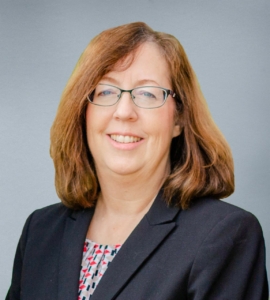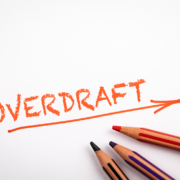Long accused by consumer advocates of using overdraft fees to cash in on people’s mistakes, banks are taking a look at ways to make the cost of an overdrawn account less onerous for customers.
The move comes as overdraft fees could be headed for closer scrutiny by regulators, and as traditional financial institutions increasingly face competition from fintech firms and products like Walmart MoneyCard.
James Johannes, a University of Wisconsin-Madison finance professor, said “banks are rethinking how to generate fees in a more politically acceptable manner.”
“At first blush I don’t see how any bank can extend credit without generating some sort of fee or interest,” said Johannes, who is director of the Puelicher Center for Banking Education and Aschenbrener Chair in Finance at the Wisconsin School of Business. “Fees are a four-letter word to many on the left, though, so banks are looking for ways to say they aren’t charging fees. One way is to call the overdraft a line of credit and charge interest.”
A recent American Banker article pointed out that since President Biden took office this year, several large banks have announced major changes that will reduce overdraft fee revenue, while others are reconsidering the fees. Among possibilities are eliminating overdraft fees altogether or introducing new products offering less-expensive options to financially hard-pressed customers.
In Wisconsin, one program aimed at attracting the unbanked and under-banked to the traditional financial services system already eschews overdraft fees.
The Bank On Greater Milwaukee initiative, which is part of a national effort to make the banking system more accommodating to more people, was launched in 2019 as a program of the Urban Economic Development Association of Wisconsin.
Key features include accounts with low or no monthly costs, no overdraft or non-sufficient fund fees, and the ability to pay bills and make purchases.
“We’re trying to get people away from the payday lending stores, the pawn shop – those types of things – and this was a way in trying on our part to do that,” said Tom Sattler, executive vice president at The Equitable Bank in Wauwatosa.
Along with The Equitable, 12 other financial institutions have established accounts that are part of Bank On Greater Milwaukee: Bank Five Nine, BMO Harris Bank, Chase, CIBC, First Federal Bank, First Midwest Bank, Old National Bank, PNC Bank, U.S. Bank, Wells Fargo, and two credit unions – Self Help and Summit.
“No overdraft fees. That’s one of the keys,” Sattler said.
There is no doubt that pressure is increasing for financial institutions in the U.S. to ease the burden of overdraft fees, said G. Michael Moebs, economist and chief executive officer at the economic research and consulting firm Moebs Services Inc. in Lake Forest, Ill.
The pressure is coming not only from politicians, but from fintechs like Chime and Walmart MoneyCard, he said.
Chime, for instance, which can receive members’ direct-deposited payroll checks into “spending accounts,” lets members make debit card purchases that overdraw their account with no overdraft fees. Limits start at $20 and can be increased to $200.
“At Chime, we’re not like most banks. We believe in having our member’s backs and will allow you to overdraft up to $200 without charging a fee,” Chime asserts on its website.
The Walmart MoneyCard also accepts deposits and offers more-accommodating and less-expensive overdrafts than most banks. MoneyCard holders can opt into a program that gives them 24 hours to fix a negative balance before they’re charged a $15 fee for each purchase transaction that overdraws the account.
A 2021 survey conducted nationally by Moebs Services Inc. lists median fees for an overdraft of less than $100 are various types of financial institutions: payday lender, $18.25; community bank, $26; credit union, $30; and large bank, $35.
Moebs is among those who think banks need to reduce overdraft fees and raise overdraw limits. It actually will benefit them by increasing the volume of overdrafts, he said.
What does Moebs think an overdraft fee should be?
“Definitely less than $20 if you’re going to do it on a price per transaction,” he said.
Moebs contends overdrafts shouldn’t be considered a great offense in the scheme of financial mistakes, but bankers have been trained to view them that way.
“They’re an error. The vast majority of people do not want to overdraw, and it’s done unintentionally,” he said.
Interestingly, during a pandemic that temporarily shut down much of the economy last year, overdrafts didn’t increase. They actually dropped by about 10%, Moebs Services data shows.
Nationally, there were 991,350,053 overdraft transactions totaling about $31.3 billion in 2020, according to Moebs Services. That compared with 1,096,928,674 overdraft transactions totaling $34.6 billion in 2019.
Experts say many people who were home last year carefully minded their money with the help of digital apps, and at the same time, were bolstered financially by government stimulus and increased unemployment funds.
But even though overdrafts decreased last year, there’s not likely to be any let-up by consumer advocates concerning fees.
In a webinar this month (July) that celebrated the 10th anniversary of the creation of the federal Consumer Financial Protection Bureau, Massachusetts Sen. Elizabeth Warren said overdraft fees remain an issue that needs to be addressed.
“There are so many areas still where the bureau can make a difference,” Warren told webinar participants from Americans for Financial Reform, the U.S. Public Interest Research Group, the Consumer Federation of America and other advocacy groups.
“I think one of them is overdraft fees. This is an area where there's a lot of predatory behavior by giant banks that make billions of dollars in profits and squeeze every last penny out of customers who are struggling,” Warren said. “And I think getting some rules around that could help families a lot.”
Moebs said banks and credit unions should lower the cost of overdrafts for their own sake.
“If they wait they are going to be losing checking account portfolio, and they are going to be losing it not to bank competitors, but they are going to be losing it to the fintechs like Walmart and Chime,” he said.
UW-Madison’s Johannes called overdraft fees “a tricky issue” that can hit smaller banks harder than large ones because the community banks don’t have as many ways to generate fee income.
“It’s a hornets’ nest of politics and profit,” he said.
Paul Gores is a journalist who covered business news for the Milwaukee Journal Sentinel for 20 years. Have a story idea? Contact him at paul.gores57@gmail.com.
By, Cassie Krause
 By Rose Oswald Poels
By Rose Oswald Poels

 By Rose Oswald Poels
By Rose Oswald Poels
